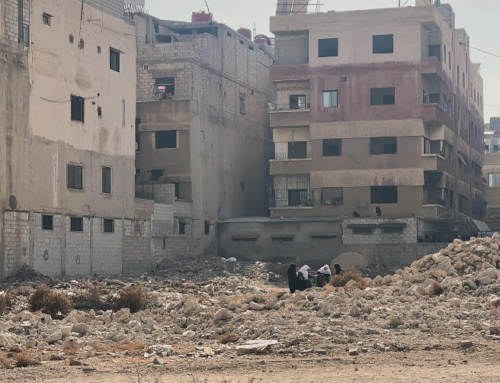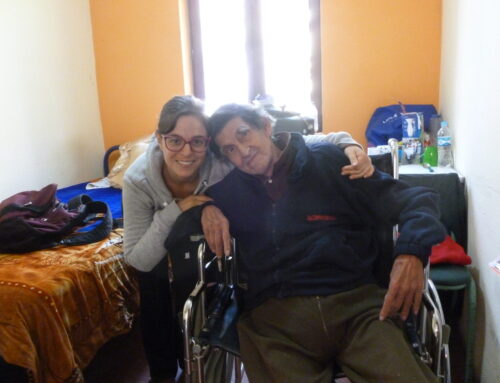What is it like to study people anthropology (supposedly) despises? The small room that hosted the roundtable session on Anthropology’s “Repugnant Others” at the AES/ABA/ALLA joint meetings in March 2019 was packed tightly, mostly with women, as we gathered to discuss this question. There was an atmosphere of pressing need to find one another, scholars studying elites, capitalists, conservatives, whites, police, military, etc., as we often feel as though we are swimming upstream. While it is generally agreed upon that our respective research is important, that these groups need to be understood, our proximity to “repugnant others” leaves us vulnerable to academic skepticism. It was in these moments of skepticism that the roundtable members opened up a host of questions that should be shaking the foundations of ethnography and what it means to do anthropology.

Susan Harding’s now iconic 1991 term “repugnant other” was the touchstone for the roundtable led by Sahana Ghosh (Yale), Hayal Akarsu (Brandeis), Samar Mussa Al-Bulushi (UC Irvine), Natalia Gutowski (Harvard), and Haley McEwen (U Witwatersrand). How, they collectively asked, has anthropology as a discipline come to dehumanize and other particular groups of people? Their research subjects ranged the gamut from military border guards in India, police in Turkey, pro-life Evangelicals in the USA and South Africa, to bureaucrats in the Israeli state, and politicians in Kenya, but in each of these cases the anthropologists on the panel struggled with representation, with access and politics in the field, and with the humanization of their interlocutors.
The issues Harding raised in her 1991 article resounded in all of the panelists’ contributions, making clear that these critiques have yet to be given due consideration in the discipline. These include the flatness with which our political and academic discourses critique “repugnant cultural others,” painting pictures of homogeneity amongst group members and reifying modern subjectivities. Furthermore, as the panelists expressed, the anthropologist’s proximity to such groups often provokes skepticism about their own affiliations, thereby potentially dehumanizing and delegitimizing the anthropologist in much the same way that our interlocutors routinely are via polemicizing discourses of “us” and “them.” In relation to her work with Fundamentalist Christians, Harding laments:
It seems that antiorientalizing tools of cultural criticism are better suited for some ‘others’ and not other ‘others’…I know this from the continuous inquiry by my colleagues into my background and my motives for choosing this and not some other, any other, ethnographic object. (In effect, I am perpetually asked: Are you now or have you ever been a practicing born-again Christian? Such queries police access to academic discourse, defining it as ‘modern’ in the sense of the secular) (1991, 375).
Issues of nuanced critique and the humanization of our interlocutors were also crucial points for both Harding and the panelists. For Harding, humanizing “repugnant others” is a way of not only destabilizing “us” and “them” categories created and policed within academic spaces, but also a way of building better politics and political action. To this the panelists added that humanization is necessary to do ethical anthropology. Nuanced critique alongside humanized representations of our interlocutors, they argued, not only illuminates the heterogeneity of experiences within such groups, but also respects the people who are being represented. Critique, even strong critique, can exist alongside humanized representations of our interlocutors.
To this end, one panelist raised a question about ethics in relation to what she called “slash and burn anthropology.” What are the ethics of gaining intimate access into a particular group if in our writing we dehumanize them, posturing them as the “repugnant other” and consequently burning our ties to the community in the process? It sometimes feels as though we have to choose between writing something that will be good for our career and something that will ethically represent our interlocutors. We should ask ourselves as a discipline why posturing ourselves in opposition, struggle even, with the “bad guys” of the world constitutes “good” anthropology? Adopting this almost expected positionality in our writing would mean, for those of us who study “the bad guys,” foreclosing opportunities at longitudinal study, deep knowledge, and ethical representation of our interlocutors. Without developing ethnographic tools for nuanced representations and critique of anthropology’s “repugnant others,” not only will we be perpetuating problematic “us” and “them” categories, but we will also be stunting disciplinary knowledge from longitudinal understandings of such groups of people.
As was apparent in both the panelists’ contributions and in the resounding voices of those in attendance, deep seated divisions between anthropology and its “repugnant others” severely limit the breadth of anthropological knowledge and what it is possible to do ethnographically. Further issues raised included logistical limitations and analytical ones, from the dearth of funding available for such topics to the theoretical gaps in taking seriously and deeply engaging with the subjectivities and everyday worlds of our interlocutors. These limitations are exacerbated, as nearly everyone in the room had experienced, by the skepticism and delegitimization imposed by our colleagues.
Similarly to Harding, in my own research with conservative Catholics in the USA, I experienced incessant questioning from peers and colleagues as to whether or not I am religious. This question about religion was essentially asking whether or not I am rational. It is usually followed by questions of skepticism about how I gained access to “such a community” without being one of them. Fellow AES intern, Gabriela Manley, who works with Scottish Nationalists echoed these experiences, especially the skepticism of access, feeling that these questions are not intended to better understand her positionality as a researcher, but to delegitimize her as a scholar. All of the roundtable members further drove this point home, citing examples of colleagues’ disbelief that they could have access to their respective fieldsite communities without sharing their political, social, and/or religious beliefs.
As the panelists emphasized repeatedly, these moments when we are facing such skepticism, are moments when disciplinary politics, ethics, and “us” and “them” boundaries are revealed. It would also seem that the panelists and attendees were pushing back against a structural idea that when studying “repugnant others,” ethics cease to matter because politics become more important. It is up to us to ask what lies behind these questions. What new reflexive turns does anthropology need? Our colleagues’ disbelief that we could have access to elites, conservatives, police, and other sorts of “repugnant” communities without being a member of them is laden with assumptions. These assumptions include the following: (1) that all people in such categories are politically, socially, racially, and economically homogenous; (2) that they are so insular and/or closeminded that they would not talk to anyone different from themselves; (3) that building intimate relationships with people means necessarily sympathizing with them; (4) that humanizing them in our writing is an act of supporting their political and other positions; and, (5) that all anthropologists share a homogenizing political orientation.
The roundtable left me and many others who were in attendance feeling inspired and supported in our efforts to understand – deeply – parts of society that trouble us or are otherwise relegated to the status of “repugnant other.” It also left us with an imperative to reexamine our ethnographic tools and disciplinary expectations and politics. What would an anthropology without “repugnant others” look like? Instead of homogenizing certain others, what can deep, nuanced, yet humanizing critique do for anthropological knowledge and political engagement?
References
Harding, Susan. 1991. “Representing Fundamentalism: The Problem of the Repugnant Cultural Other.” Social Research 58 (2): 373-393.
Cite as
Carey, Grace. “Anthropology’s “Repugnant Others”.” American Ethnologist website. April 23, 2019. http://americanethnologist.org/features/reflections/anthropologys-repugnant-others
Grace A Carey is an AES intern and doctoral candidate in the Department of Anthropology at Princeton University. She works on Catholic community building in the USA and the creation of a privately owned and governed Catholic town in the Florida Everglades.




